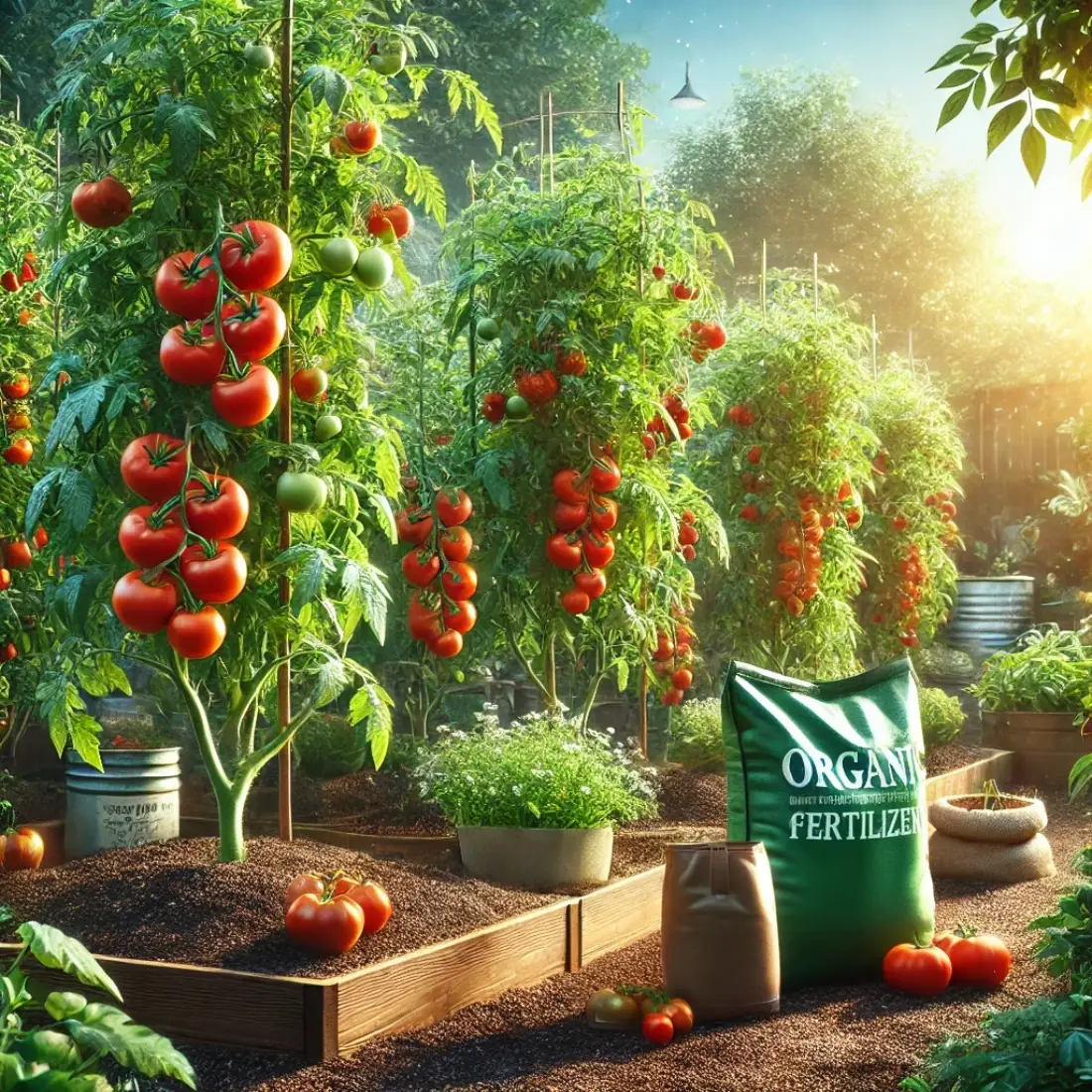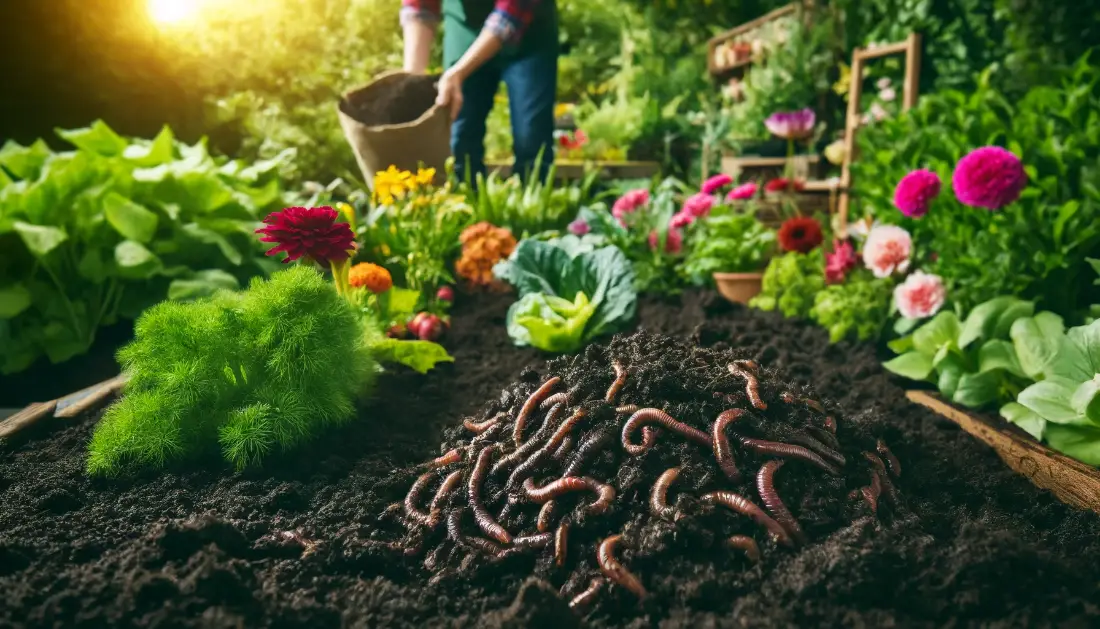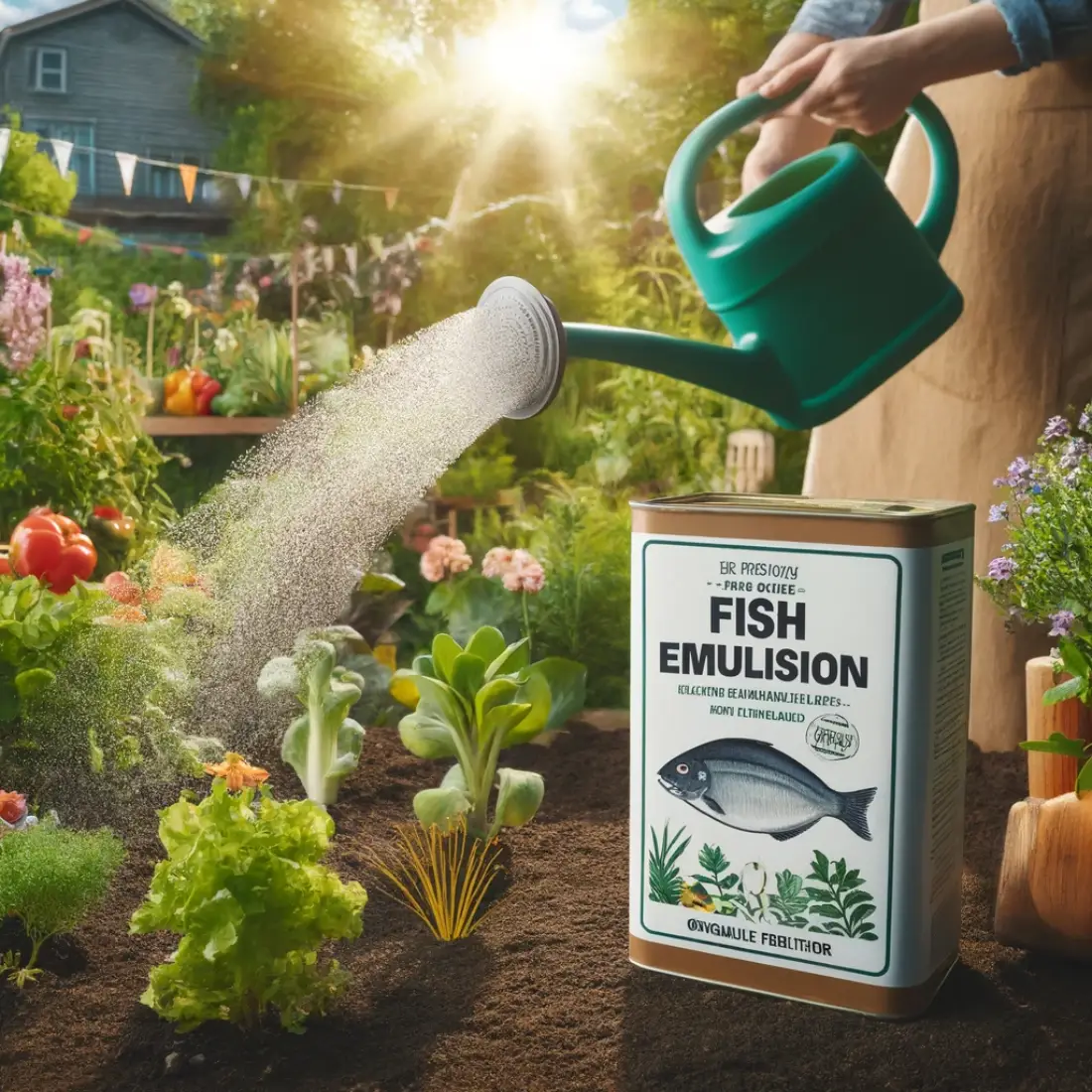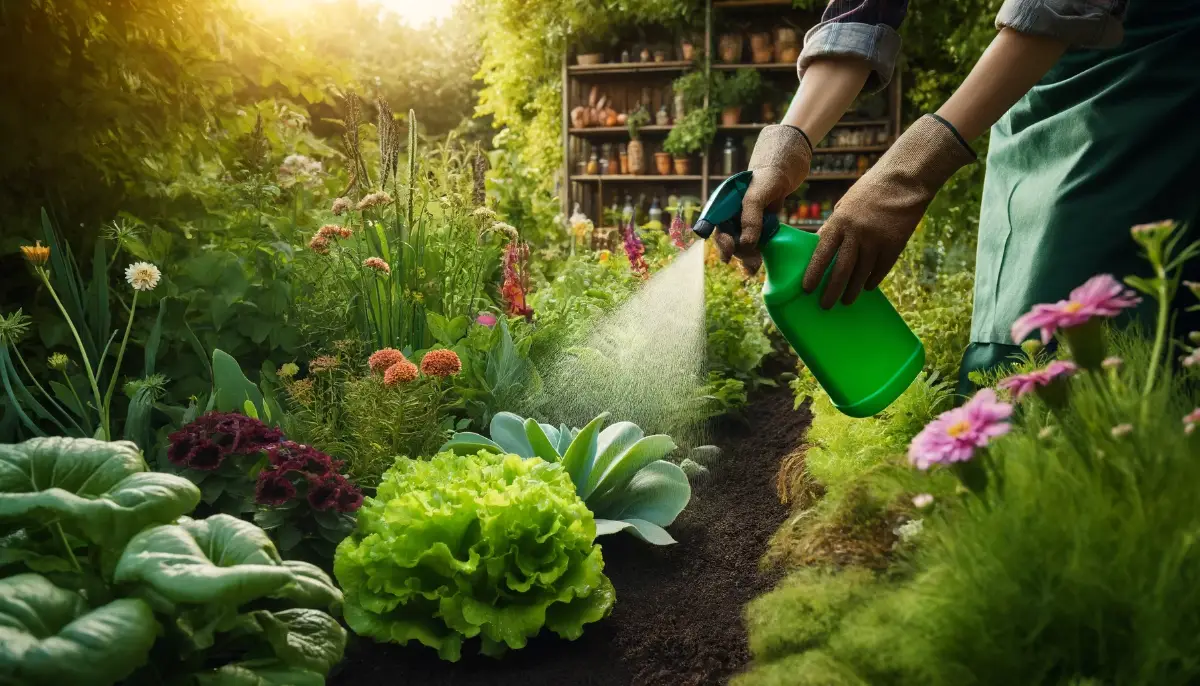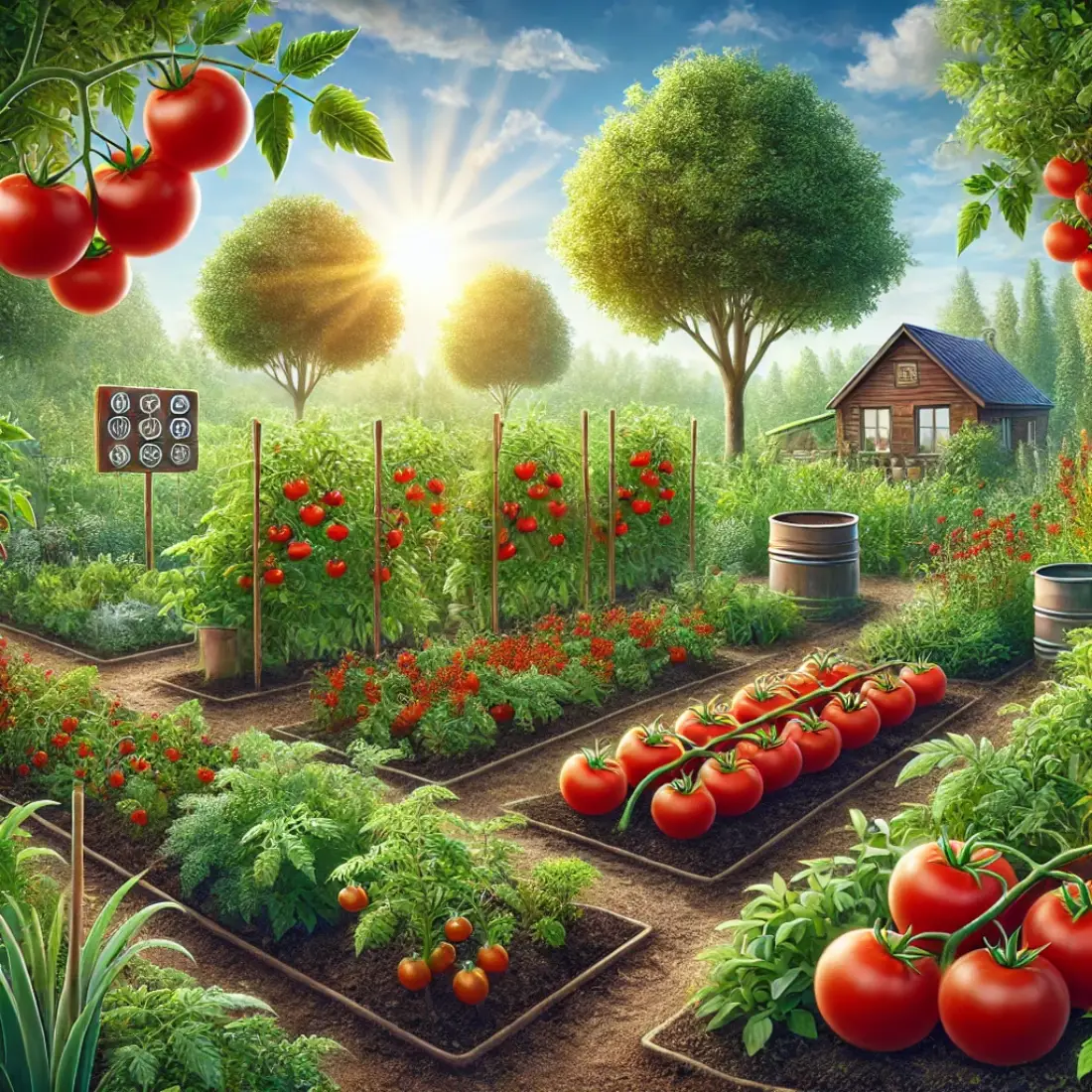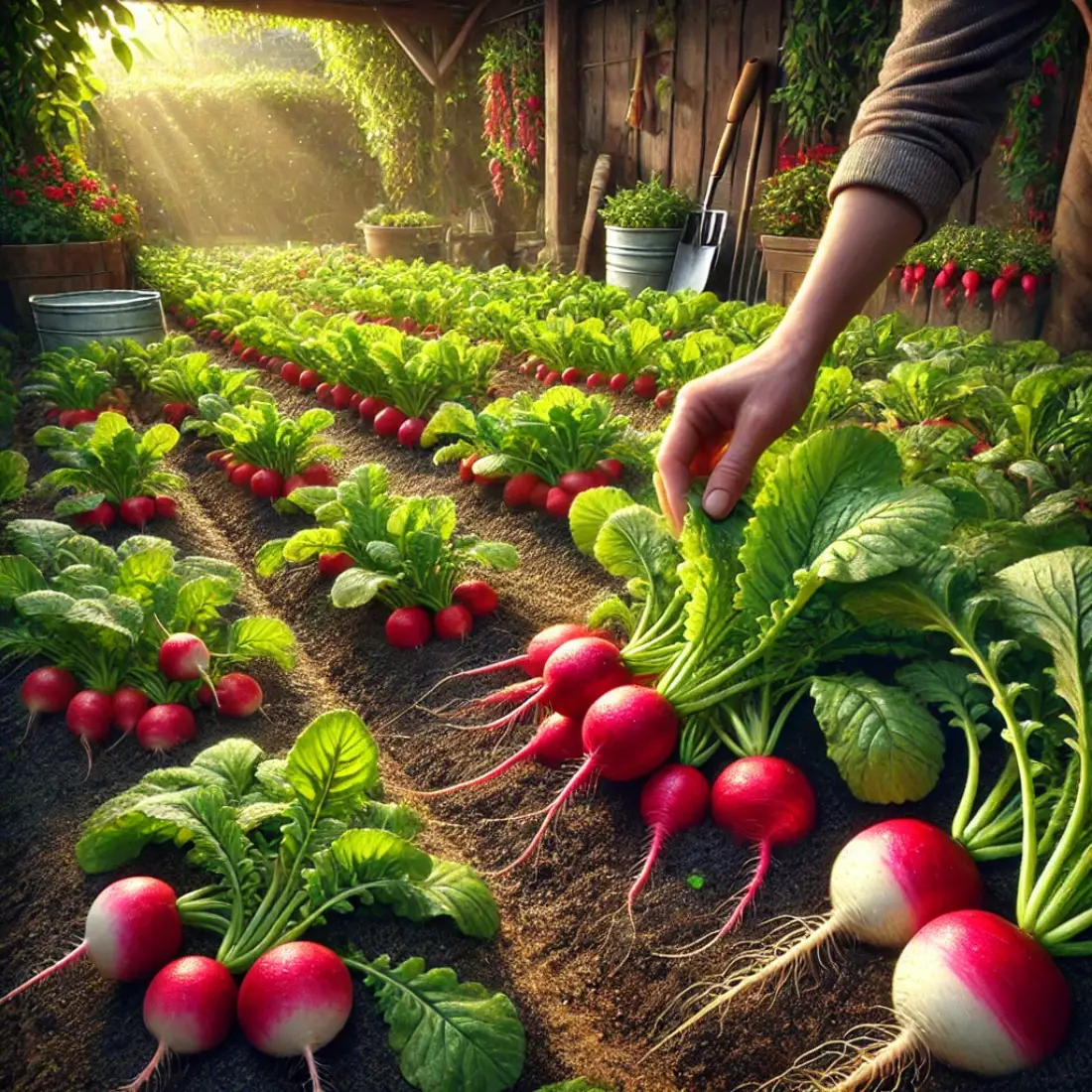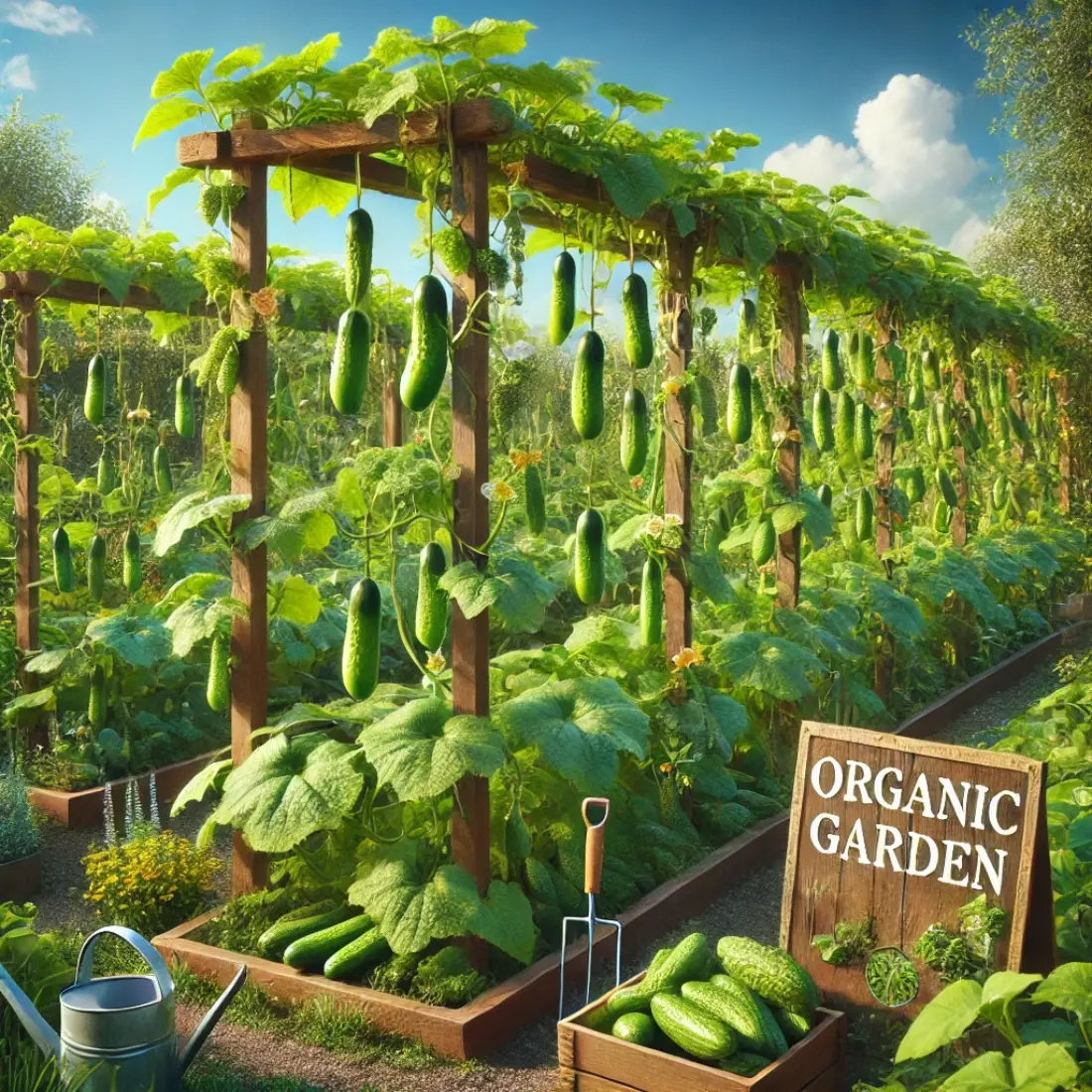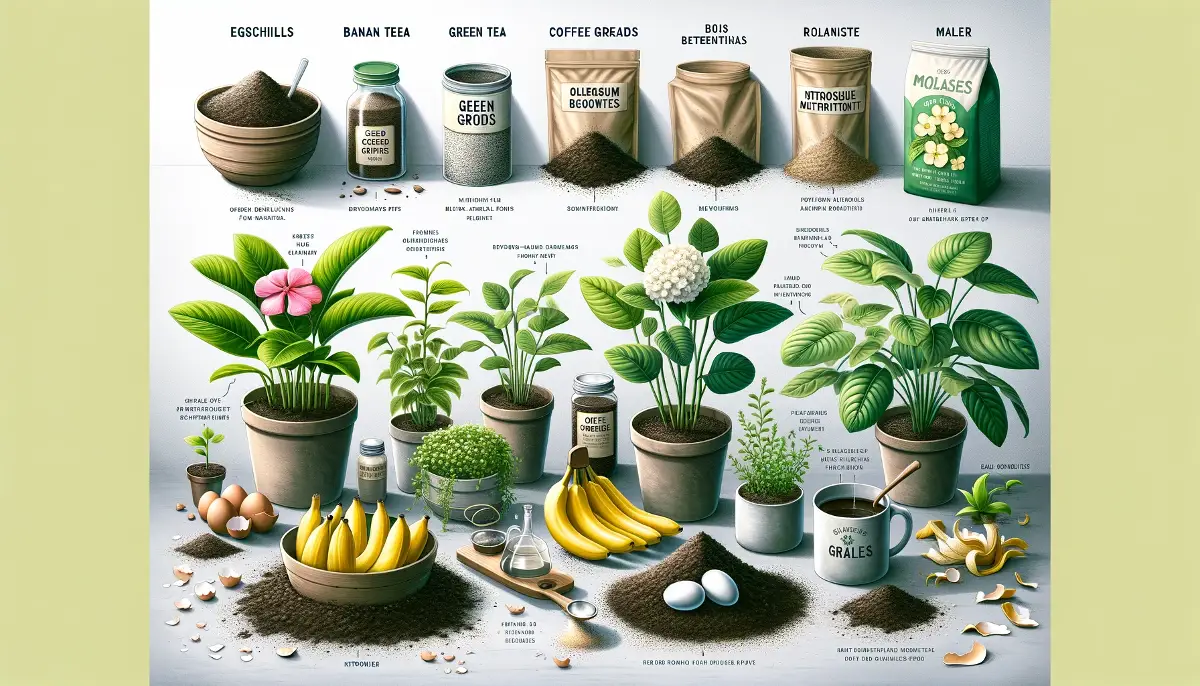Growing healthy and bountiful tomato plants can be challenging without the right nutrients. Using organic fertilizers is a natural and effective way to ensure your tomato plants receive the essential nutrients they need. These fertilizers not only improve soil health but also promote sustainable gardening practices.
- Compost: Enriches soil with essential nutrients and improves soil structure, leading to healthier tomato plants.
- Worm Castings: Provide a rich source of nutrients and beneficial microbes, enhancing soil fertility and plant growth.
- Fish Emulsion: Offers a balanced nutrient profile, promoting vigorous growth and robust tomato plants.
- Bone Meal: Supplies phosphorus, crucial for strong root development and fruit production.
- Blood Meal: High in nitrogen, it supports lush foliage growth and overall plant health.
- Seaweed Fertilizer: Contains trace minerals and growth hormones, boosting plant resilience and productivity.
- Alfalfa Meal: Provides a slow-release source of nitrogen and other essential nutrients, improving soil and plant health.
- Manure: Rich in organic matter and nutrients, it enhances soil fertility and promotes healthy plant growth.
- Green Manure Cover Crops: Improve soil structure and nutrient content, benefiting tomato plants in the long term.
- Organic Liquid Fertilizers: Offer quick nutrient absorption, supporting immediate plant growth and health.
The Importance of Organic Fertilizers for Tomato Plants
Using organic fertilizers for tomato plants is crucial for achieving healthy and bountiful harvests. Organic fertilizers improve soil health by adding essential nutrients and enhancing soil structure. Unlike synthetic fertilizers, they release nutrients slowly, ensuring a steady supply to the plants without causing nutrient burn. This slow release also promotes the growth of beneficial microorganisms, which further improve soil fertility.
Organic fertilizers, such as compost, worm castings, and manure, are rich in organic matter. This organic matter increases the soil’s water-holding capacity, reducing the need for frequent watering. Additionally, organic fertilizers contribute to a balanced nutrient profile, providing essential elements like nitrogen, phosphorus, and potassium, as well as trace minerals vital for plant growth.
Environmental benefits are another significant advantage of using organic fertilizers. They are made from natural materials, reducing the risk of harmful chemicals leaching into the groundwater and minimizing the environmental impact. By using organic fertilizers, gardeners can contribute to sustainable gardening practices, promoting biodiversity and ecological balance.
Top 10 Organic Fertilizers for Tomato Plants
Organic fertilizers are essential for growing healthy and productive tomato plants. They provide essential nutrients, improve soil health, and promote sustainable gardening practices. Here are the top 10 organic fertilizers for tomato plants:
Compost
Compost is one of the best organic fertilizers for tomato plants. It is made from decomposed organic matter, such as kitchen scraps, yard waste, and manure. Compost improves soil structure, increases moisture retention, and provides a rich source of nutrients.
Benefits:
- Enhances soil fertility and structure.
- Provides a balanced mix of nutrients.
- Promotes beneficial microbial activity.
How to Use:
- Mix compost into the soil before planting.
- Use as a top dressing around the base of tomato plants throughout the growing season.
Worm Castings
Worm castings, or vermicompost, are the nutrient-rich waste produced by earthworms. They are an excellent source of essential nutrients and beneficial microbes that promote healthy plant growth.
Benefits:
- Rich in essential nutrients like nitrogen, phosphorus, and potassium.
- Improves soil structure and water retention.
- Boosts plant immunity and resistance to diseases.
How to Use:
- Mix worm castings into the soil before planting.
- Use as a side dressing around tomato plants during the growing season.
Fish Emulsion
Fish emulsion is a liquid fertilizer made from fish waste. It is high in nitrogen, phosphorus, and potassium, making it an excellent choice for promoting vigorous tomato plant growth.
Benefits:
- Provides a balanced mix of nutrients.
- Promotes strong root development and lush foliage.
- Quick-acting and easily absorbed by plants.
How to Use:
- Dilute fish emulsion with water according to package instructions.
- Apply as a foliar spray or soil drench every 2-3 weeks.
Bone Meal
Bone meal is a slow-release fertilizer made from ground animal bones. It is rich in phosphorus, which is essential for strong root development and fruit production in tomato plants.
Benefits:
- Provides a high concentration of phosphorus.
- Supports healthy root development and flower formation.
- Improves overall plant strength and productivity.
How to Use:
- Mix bone meal into the soil before planting.
- Use as a side dressing during the flowering and fruiting stages.
Blood Meal
Blood meal is a high-nitrogen fertilizer made from dried animal blood. It is an excellent source of nitrogen, which is essential for promoting lush, green foliage in tomato plants.
Benefits:
- Provides a high concentration of nitrogen.
- Promotes vigorous leaf growth and healthy plant development.
- Quick-acting and easily absorbed by plants.
How to Use:
- Mix blood meal into the soil before planting.
- Use as a side dressing during the early growth stages.
Seaweed Fertilizer
Seaweed fertilizer is made from dried and processed seaweed. It is rich in trace minerals, growth hormones, and beneficial enzymes that promote healthy tomato plant growth.
Benefits:
- Provides essential trace minerals and nutrients.
- Promotes strong root development and plant resilience.
- Enhances overall plant health and productivity.
How to Use:
- Dilute seaweed fertilizer with water according to package instructions.
- Apply as a foliar spray or soil drench every 2-3 weeks.
Alfalfa Meal
Alfalfa meal is a plant-based fertilizer made from ground alfalfa. It is a good source of nitrogen, phosphorus, potassium, and other essential nutrients that support healthy tomato plant growth.
Benefits:
- Provides a balanced mix of nutrients.
- Promotes healthy root development and vigorous growth.
- Improves soil structure and microbial activity.
How to Use:
- Mix alfalfa meal into the soil before planting.
- Use as a side dressing throughout the growing season.
Manure
Manure is a traditional organic fertilizer made from animal waste. It is rich in organic matter and essential nutrients, making it an excellent choice for improving soil fertility and promoting healthy tomato plant growth.
Benefits:
- Provides a high concentration of organic matter and nutrients.
- Improves soil structure and moisture retention.
- Promotes healthy microbial activity in the soil.
How to Use:
- Compost manure before using to reduce the risk of pathogens.
- Mix composted manure into the soil before planting.
- Use as a side dressing throughout the growing season.
Green Manure Cover Crops
Green manure cover crops are plants grown specifically to be turned into the soil to improve its fertility. Common green manure crops include clover, vetch, and rye. They enrich the soil with organic matter and nutrients, improving its structure and fertility.
Benefits:
- Improves soil structure and fertility.
- Adds organic matter and essential nutrients to the soil.
- Reduces soil erosion and weed growth.
How to Use:
- Plant green manure crops during the off-season.
- Turn the crops into the soil before planting tomatoes.
Organic Liquid Fertilizers
Organic liquid fertilizers are made from natural ingredients and provide a quick source of nutrients to tomato plants. They are ideal for foliar feeding and soil drenching, promoting healthy growth and productivity.
Benefits:
- Provides a quick source of essential nutrients.
- Easily absorbed by plants.
- Promotes healthy growth and productivity.
How to Use:
- Dilute organic liquid fertilizers with water according to package instructions.
- Apply as a foliar spray or soil drench every 2-3 weeks.
How to Choose the Right Organic Fertilizer for Your Tomato Plants
Selecting the right organic fertilizer for your tomato plants depends on several factors, including soil type, plant growth stage, and specific nutrient needs. Start by testing your soil to determine its nutrient content and pH level. This information will help you choose a fertilizer that addresses any deficiencies and balances soil conditions.
Consider the growth stage of your tomato plants. Young plants require more nitrogen for leaf development, making blood meal or alfalfa meal ideal choices. As plants mature and start flowering, phosphorus-rich fertilizers like bone meal or fish emulsion support strong root systems and fruit production.
Also, think about the texture and composition of your soil. Compost and worm castings are excellent for improving soil structure and increasing moisture retention in sandy soils. For clay soils, organic liquid fertilizers provide nutrients without further compacting the soil.
Always opt for high-quality, well-composted organic fertilizers to avoid introducing pathogens or weed seeds into your garden. Look for products that are certified organic to ensure they meet stringent standards for purity and effectiveness.
Application Tips for Optimal Results
Applying organic fertilizers correctly is crucial for maximizing their benefits to your tomato plants. Here are some tips to ensure optimal results:
Pre-Planting Preparation
- Soil Testing: Start with a soil test to determine nutrient levels and pH. This helps you choose the right fertilizer.
- Amend the Soil: Incorporate compost or well-rotted manure into the soil before planting to enhance soil structure and fertility.
Planting Stage
- Starter Fertilizer: Use a balanced organic fertilizer like worm castings or compost in the planting hole to give young plants a strong start.
Growing Season
- Regular Feeding: Apply organic fertilizers at regular intervals based on the specific product’s recommendations. For example, fish emulsion can be applied every 2-3 weeks.
- Side Dressing: Spread fertilizers like bone meal or blood meal around the base of the plants, lightly mixing it into the soil. This ensures a slow release of nutrients.
- Foliar Feeding: Use liquid fertilizers like seaweed extract as a foliar spray for quick nutrient absorption, especially during critical growth stages.
Watering
- Consistency: Keep the soil consistently moist but not waterlogged. Proper watering ensures nutrients are effectively absorbed by the plants.
- Mulching: Apply mulch around the base of the plants to retain moisture, regulate soil temperature, and reduce weed competition.
Monitoring Plant Health
- Observation: Regularly check for signs of nutrient deficiencies, such as yellowing leaves or poor growth. Adjust your fertilization schedule accordingly.
- Balanced Feeding: Avoid over-fertilization, which can lead to nutrient imbalances and plant stress. Follow recommended application rates.
Common Mistakes to Avoid When Using Organic Fertilizers
Using organic fertilizers can greatly benefit your tomato plants, but certain mistakes can hinder their effectiveness. Here are some common pitfalls to avoid:
Over-Fertilization:
- Excess Nutrients: Applying too much fertilizer can lead to nutrient imbalances, causing issues like leaf burn, stunted growth, and reduced fruit production.
- Solution: Follow the recommended application rates and schedules on the fertilizer packaging.
Incorrect Timing:
- Wrong Stage: Applying fertilizers at the wrong growth stage can be ineffective or even harmful. For example, too much nitrogen during fruiting can lead to excessive foliage and fewer tomatoes.
- Solution: Use high-nitrogen fertilizers during the early growth stages and switch to phosphorus and potassium-rich fertilizers during flowering and fruiting.
Poor Soil Preparation:
- Unamended Soil: Failing to prepare the soil properly before planting can reduce fertilizer effectiveness. Compacted or nutrient-deficient soil limits root growth and nutrient uptake.
- Solution: Amend the soil with compost or manure before planting to improve soil structure and fertility.
Inconsistent Application:
- Irregular Feeding: Inconsistent fertilization can lead to fluctuating nutrient levels, stressing the plants.
- Solution: Establish a regular feeding schedule based on the needs of your tomato plants and the type of fertilizer used.
Ignoring Soil pH:
- Imbalanced pH: Soil pH affects nutrient availability. Too acidic or alkaline soil can lock up nutrients, making them inaccessible to plants.
- Solution: Test soil pH and adjust it to the optimal range (6.0-6.8) using appropriate amendments like lime or sulfur.
Using Uncomposted Manure:
- Pathogens and Weeds: Fresh manure can contain harmful pathogens and weed seeds, potentially harming your plants.
- Solution: Always compost manure thoroughly before applying it to your garden.
FAQs about Organic Fertilizers for Tomato Plants
What is the best organic fertilizer for tomato plants?
The best organic fertilizer depends on your soil’s needs and the growth stage of your tomato plants. Compost, worm castings, and fish emulsion are excellent all-around choices that provide a balanced mix of nutrients.
How often should I fertilize my tomato plants?
Tomato plants should be fertilized every 2-3 weeks during the growing season. Adjust the frequency based on the type of organic fertilizer used and the specific needs of your plants.
Can I use kitchen scraps as fertilizer for tomato plants?
Yes, kitchen scraps can be composted to create a nutrient-rich fertilizer for tomato plants. Ensure the compost is fully decomposed before using it in your garden to avoid attracting pests and causing nutrient imbalances.
What are the signs of over-fertilization in tomato plants?
Signs of over-fertilization include yellowing leaves, leaf burn, stunted growth, and poor fruit production. If you notice these symptoms, reduce the amount of fertilizer and flush the soil with water to remove excess nutrients.
Are there any organic fertilizers that can harm my tomato plants?
Improperly composted manure and excessive use of high-nitrogen fertilizers can harm tomato plants. Always ensure organic fertilizers are well-composted and apply them according to recommended guidelines to avoid nutrient imbalances and plant stress.
Can I make my own organic fertilizer at home?
Yes, you can make your own organic fertilizers using materials like banana peels, eggshells, coffee grounds, and Epsom salt. These DIY fertilizers are easy to make and provide essential nutrients for your tomato plants.
How do I know if my soil needs fertilizing?
Conduct a soil test to determine nutrient levels and pH. If the soil test indicates nutrient deficiencies or an imbalanced pH, fertilizing can help improve soil health and plant growth.
What is the difference between compost and manure?
Compost is decomposed organic matter, such as kitchen scraps and yard waste, while manure is animal waste that has been composted. Both improve soil structure and fertility, but manure is typically richer in nutrients and should be well-composted before use to avoid introducing pathogens.
How do organic fertilizers compare to synthetic fertilizers?
Organic fertilizers release nutrients slowly, improve soil structure, and promote beneficial microbial activity, whereas synthetic fertilizers provide a quick nutrient boost but can harm soil health and the environment over time. Organic options are generally more sustainable and eco-friendly.
Can I use multiple types of organic fertilizers on my tomato plants?
Yes, using a combination of organic fertilizers can provide a balanced mix of nutrients and improve soil health. For example, you can use compost for overall soil fertility, bone meal for phosphorus, and fish emulsion for a quick nutrient boost.

